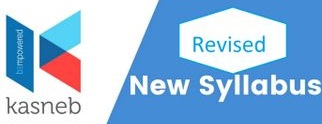CPA FOUNDATION LEVEL
CS FOUNDATION LEVEL
INFORMATION COMMUNICATION TECHNOLOGY
WEDNESDAY: 3 August 2022. Afternoon paper. Time Allowed: 3 hours.
QUESTION ONE
(a) Suggest the ethical issues resulting from each of the following technological trends:
(i) Doubling of computing power every eighteen (18) months. (2 marks)
(ii) Rapidly declining data storage costs. (2 marks)
(iii) Advances in networking and the internet. (2 marks)
(b) Outline four characteristics of an open system. (4 marks)
(c) Describe five moral dimensions of information systems. (5 marks)
(d) Outline three measurers that you could include in your business continuity plan. (3 marks)
(e) Explain the purpose of HLOOKUP as used in spreadsheet applications. (2 marks)
QUESTION TWO
(a) Giving an example in each case, differentiate between technological convergence and digital convergence as used in information technology communication. (4 marks)
(b) XYZ Company Ltd. intends to develop an information system for its operations.
Outline three strategies that the board could put in place to ensure the success of this project. (3 marks)
(c) A manager in an entertaining industry intends to use data driven decision support system to design a new product.
Outline three characteristics that the system should possess. (3 marks)
(d) Suggest how a business could overcome each of the following e-commerce challenges.
(i) Payment fraud. (2 marks)
(ii) Lack of visitors to the business website. (2 marks)
(iii) Theft of customer information. (2 marks)
(e) Using an illustration, explain a pivot table as used in spreadsheet applications. (4 marks)
QUESTION THREE
(a) Formulate four questions that would enable you to conduct stakeholder analysis in system development. (4 marks)
(b) Explain the bookmark feature in the context of the internet browsing. (2 marks)
(c) Identify the type of cell referencing used in the spreadsheet expressions below:
(i) =RANK($C$3 : $A$10,0) (1 mark)
(ii) =SUM(A$3 : A12) (1 mark)
(d) Differentiate between sorting and filtering as used in worksheet data management. (2 marks)
(e) Differentiate between proofreading and formatting a document as used in word processing. (2 marks)
(f) A comprehensive backup plan is an essential tool for information security for the entire organisation. Not only should the data on the corporate servers be backed up, but individual computers used throughout the organisation should also be backed up.
With reference to the above statement, discuss three components of a good backup plan. (6 marks)
(g) Explain each of the following terms as used in internet:
(i) Cookies. (1 mark)
(ii) Blog. (1 mark)
QUESTION FOUR
(a) Citing three reasons, explain the importance of requirements gathering in system development. (3 marks)
(b) Justify why an information system is considered as an intellectual property. (4 marks)
(c) Explain the following features of a presentation package:
(i) Transition effects. (1 mark)
(ii) Speaker notes. (1 mark)
(iii) Templates. (1 mark)
(d) The organisation where you work intends to set up a local area network.
Advise your management team on three hardware components required to accomplish the above task. (6 marks)
(e) Outline four factors that could be used when selecting the best software development methodology for a specific project. (4 marks)
QUESTION FIVE
(a) Explain six reasons that would cause an information system project to fail during the implementation stage. (6 marks)
(b) In each of the following, explain how a spreadsheet program is used:
(i) Accounting. (2 marks)
(ii) Forecasting. (2 marks)
(c) Describe each of the following ethical issues in regard to computer technology:
(i) Trade marks. (2 marks)
(ii) Patent rights. (2 marks)
(d) Most organisations align their information systems functions to their business strategic plan.
Explain three benefits of this alignment. (6 marks)
QUESTION SIX
(a) An insurance company has decided that it no longer requires a physical Head Office. Its strategic aim is to become a virtual organisation. The company’s auditors have concerns that information held the virtual company would lack security.
Required:
Describe three measures that could be adopted to ensure the information in the insurance company remain secure. (6 marks)
(b) Highlight three challenges of prosecuting ICT cases in court. (3 marks)
(c) Explain four application areas of cloud computing technology in a governance/accounting services firm. (4 marks)
(d) Identify five major management challenges to building and implementing information systems within an organisation. (5 marks)
(e) Outline two limitations of a touch screen as an input device. (2 marks)
QUESTION SEVEN
(a) Explain three legal issues involved when a person who is a resident in Kenya or your country wants to purchase a car offered for sale in Japan via a server in Hungary. Assume he is doing online purchase through e-Commerce. (3 marks)
(b) John Mbululu intends to implement cloud computing in his organisation but he has several concerns about cloud computing.
Suggest three possible concerns for John Mbululu. (3 marks)
(c) One technique for gathering requirements during system development is the use of workshops.
Discuss two advantages and two disadvantages of using workshops for requirements gathering. (4 marks)
(d) (i) To minimise resistance during system changeover, it is always necessary to involve users.
Identify four different ways of involving users in the system development process. (4 marks)
(ii) Explain four approaches used in system changeover. (4 marks)
(iii) Explain the significance of an information centre in an organisation. (2 marks)
